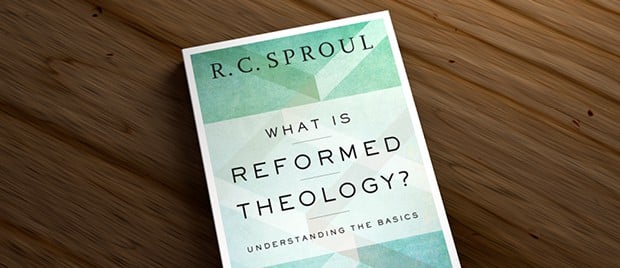⏱️ Estimated Reading Time: 2 min read
What is Reformed Theology? originally appeared in 1997. This updated volume has a new cover and new contemporary format. The content, however, remains the same as Dr. Sproul guides readers through the wonders of Reformed Theology.
Part One: Foundations of Reformed Theology
The first half of the book helps readers understand the necessary backdrop of Reformed theology. Of primary importance is its devotion to God. Sproul writes, “Reformed theology is first and foremost theocentric rather than anthropocentric … Reformed theology takes sin seriously because it takes God seriously and because it takes people seriously. Sin offends God and violates human beings. Both of these are serious matters.” The author clarifies that Reformed theology is devoted to more than merely five points. Indeed, Reformed theology is catholic (it embraces the great ecumenical councils and the doctrines of church history) and historic evangelical theology.
Reformed theology is based on God’s Word alone. The commitment to the sola Scriptura principle is a fundamental aspect of Reformed thought. Therefore, the crucial doctrines of the infallibility, inspiration, authority, and inerrancy of Scripture are at the core of Reformed theology.
Reformed theology embraces the sola fide principle. We agree with Luther who famously said that justification by faith is “the article upon which the church stands or falls.” As such, we repudiate the Roman Catholic doctrine of justification which involves both faith and works.
Finally, the author includes a helpful overview of covenant theology which involves the covenant of redemption, covenant of works, and the covenant of grace.
Part Two: Five Points of Reformed Theology
Part two contains a basic overview of what is traditionally referred to as the five points of Calvinism. Each chapter summarizes the critical elements of the five points, including total depravity, unconditional election, limited atonement, irresistible grace, and the perseverance of the saints.
Sproul writes clearly and forcefully. His arguments are biblical and logical and compel readers to embrace these historic biblical doctrines. What is Reformed Theology? is probably the best introduction to the doctrines of grace in print. Other resources include The Reformed Doctrine of Predestination by Lorraine Boettner, The Joy Project by Tony Reinke, The Doctrines of Grace by James Boice, The Five Points of Calvinism by Edwin H. Palmer, and The Potters Freedom by James Boice.
Highly recommended!
I received this book free from the publisher. I was not required to write a positive review.



